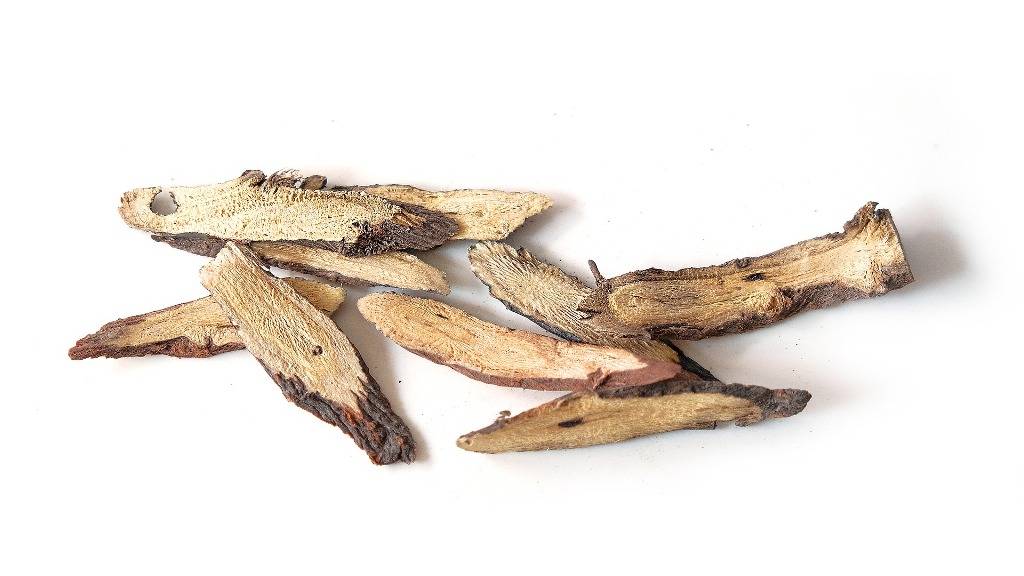
Mulethi (liquorice) is a flowering plant native to the southern Europe and western Asia. Its root is mainly used for medicinal purposes. From ancient time, the plant is used majorly as a flavouring agent, confectionery agent and to treat various ailments.
Licorice root contains the compound glycyrrhizin and eating too much of glycyrrhizin can cause adverse effects such as hypertension.
Mulethi has a multitude of benefits. Some of them are:
The root extract of mulethi is a boon for the skin. The roots are rich in phytochemical constituents that have anti- viral, anti - inflammatory and anti- bacterial properties.
1. The extract can be used to treat acne and eczema. Also it can also lighten and brighten your skin, as it is rich in oxidants.
2. According to some studies, mulethi's root extract can help fight bacteria that infect the skin like Staphylococcus aureus that causes skin infections like cellulitis, impetigo etc.
3. The extract helps in reducing hyperpigmentation. It occurs when skin is exposed to some free radicals in the body, the cells that generate melanin gets damaged and produces more than normal amounts of melanin in some areas.
Licorice root extract fights the free radicals by inhibiting their production and preventing excess melanin from being produced.
4. Mulethi roots are rich in glycyrrhizin which is a potent antioxidant. These antioxidants help in preventing premature ageing through protecting the skin from harmful UV rays and free radicals.
5. Glabridin and Liquitin present in mulethi roots have skin lightening properties. Liquitin disintegrate and breakdown excess melanin while Glabridin prevents the production of enzyme Tyrosinase which is responsible for skin darkening.
6. Licochalcone A is an active ingredient present in the roots of mulethi. It strengthens the defense mechanism of skin by increasing anti - oxidant production.
Licochalcone A also helps in reducing oil production, thus, reducing acne.
How to use mulethi root extract:
The root extract is already present in some topical creams, serums and sheet masks. There is higher amount of extract in serums as they are highly concentrated.
To protect the skin from sun and reduce pigmentation significantly, use root extract with Vitamin C (use it before sunscreen only).
How to make root extract at home?
* Hang the mulethi roots till they are dry enough.
* Cut them into thin slices.
* In a pot, add the root and pour water so that roots are immersed enough.
* Steam and evaporate the roots on low heat for 60 - 90 minutes.
* After 90 mins cool it and separate roots from water and transfer to a clean bottle.
* Store it at a cool place and use it within 2- 4 weeks.
7. Glabridin and glabrene the flavonoids present in the extract are quite effective in relieving stomach discomfort. It helped in reducing nausea, heartburn and stomach pain.
8. A study shows that mulethi extract can help in eradication of H.pylori bacteria which is responsible for peptic ulcers.
9. A research also shows that gargling with licorice solution for 15 - 20 mins is effective against sore throat.
How to make mulethi tea?
1. Take 2 cups of water and give it a boil.
2. Add some mulethi roots (each cut one inch only) and let it simmer for few minutes.
3. Strain and enjoy the tea.
Variations of mulethi tea:
-
Add ginger and black pepper to make it strong to soothe cold and cough more efficiently.
-
add cinnamon to increase anti oxidants
-
Add orange to increase anti inflammatory properties
-
Add honey if you are suffering from ulcers or digestive problems as it has quite good healing properties.
10. Other claims in case of mulethi benefits (these lack proofs):
-
It can help in treating allergies
-
It can help in lowering cholesterol
-
It's usage can help in preventing tooth decay, plaque and gum disease.
-
It can be effective against viral diseases.
-
It can work against snakebites as an antivenin.
-
It can help in treatment of tetanus.
















